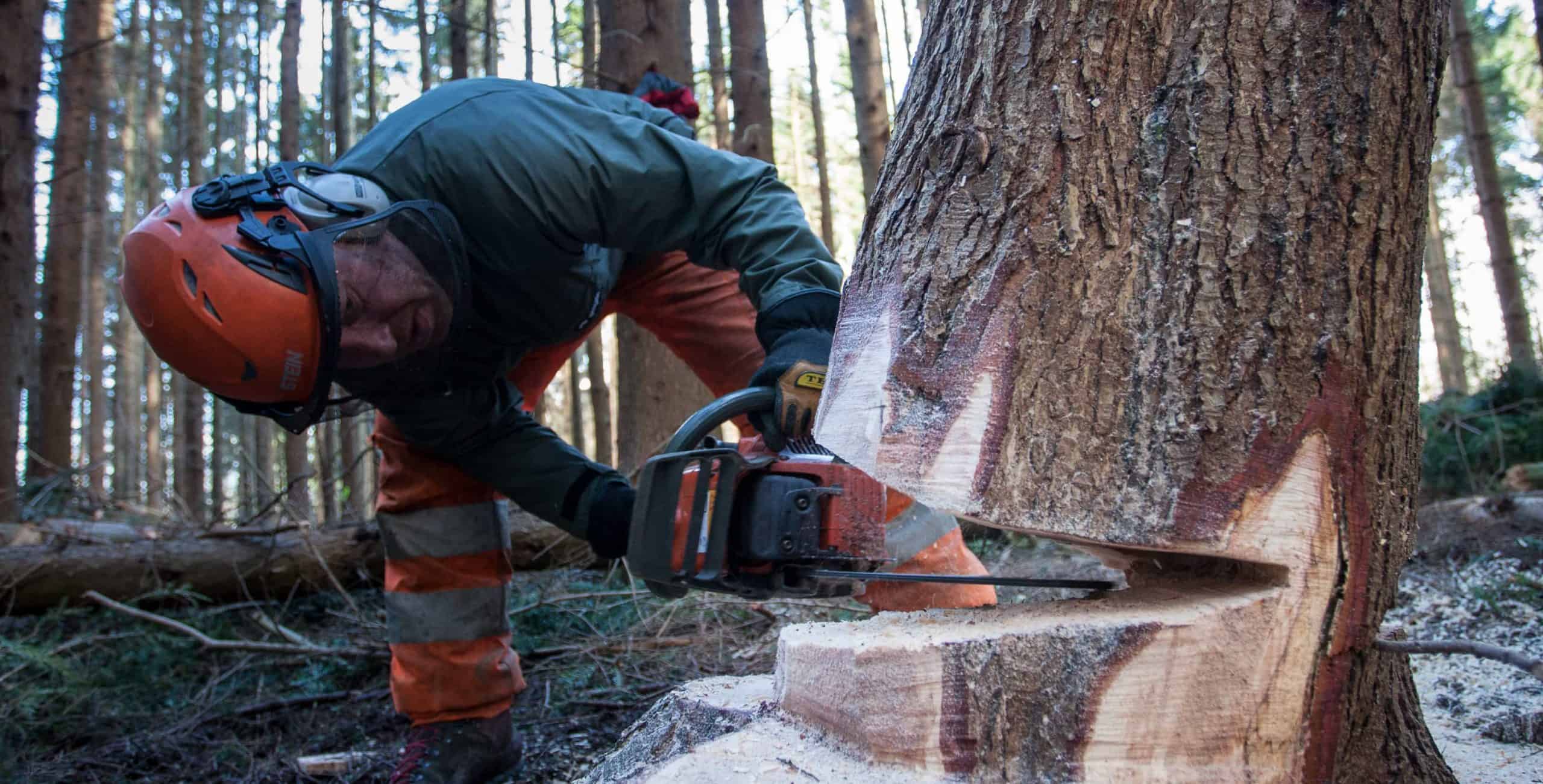The arboricultural industry manages trees for their benefits and values in diverse urban and rural locations from city parks and urban woodlands, to country estates and private gardens. The industry manages trees adjacent to highways, railways, watercourses and power lines.
An arborist may progress to undertake inspections and surveys of individual and woodland trees, advising landowners on how to care for their trees, or teaching others about the benefits of carefully managing trees.
The work of an arborist involves diverse activities such as chainsaw work, aerial tree work, pruning, dismantling and using appropriate machinery such as brushwood chippers.
Arborists can work for local authorities, private companies and many are also self-employed. Tree work can be physically demanding and involves working outdoors in all weathers.
An arborist will undertake aerial tree work but may also be ground-based.
They do a range of tree work jobs with indirect supervision.
They are capable of supporting the tree work team across a range of basic technical skills.
